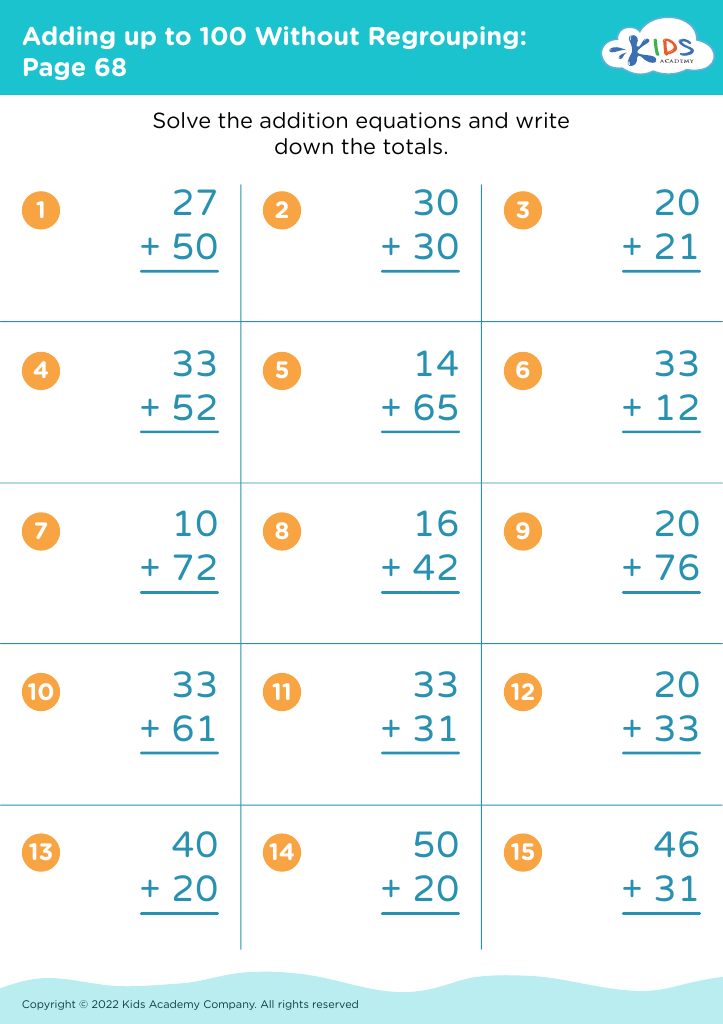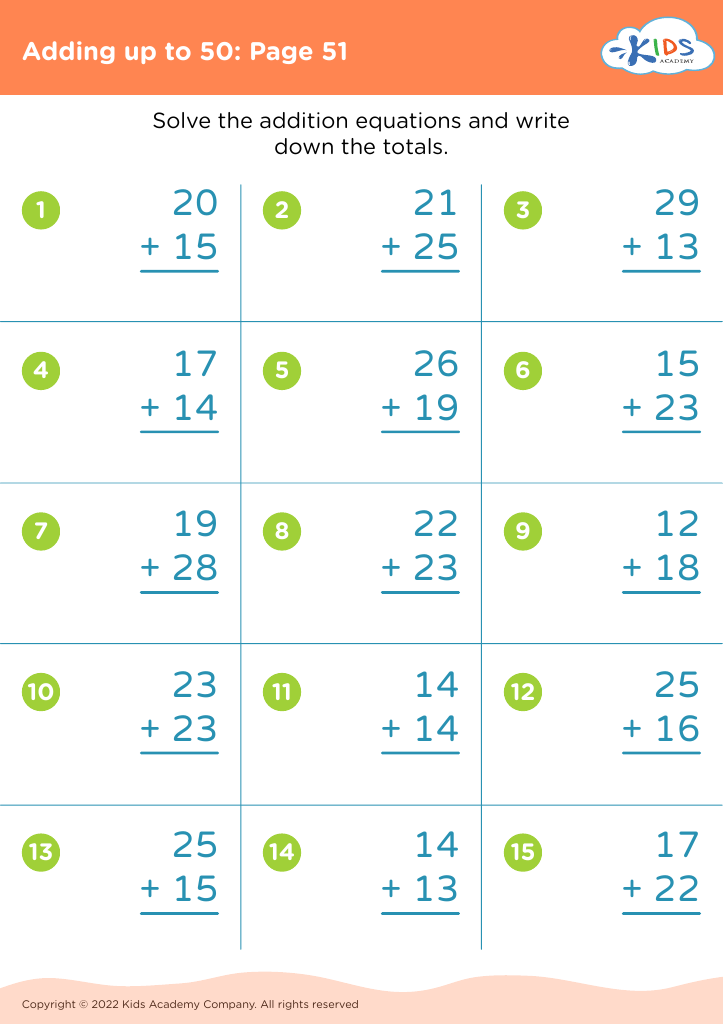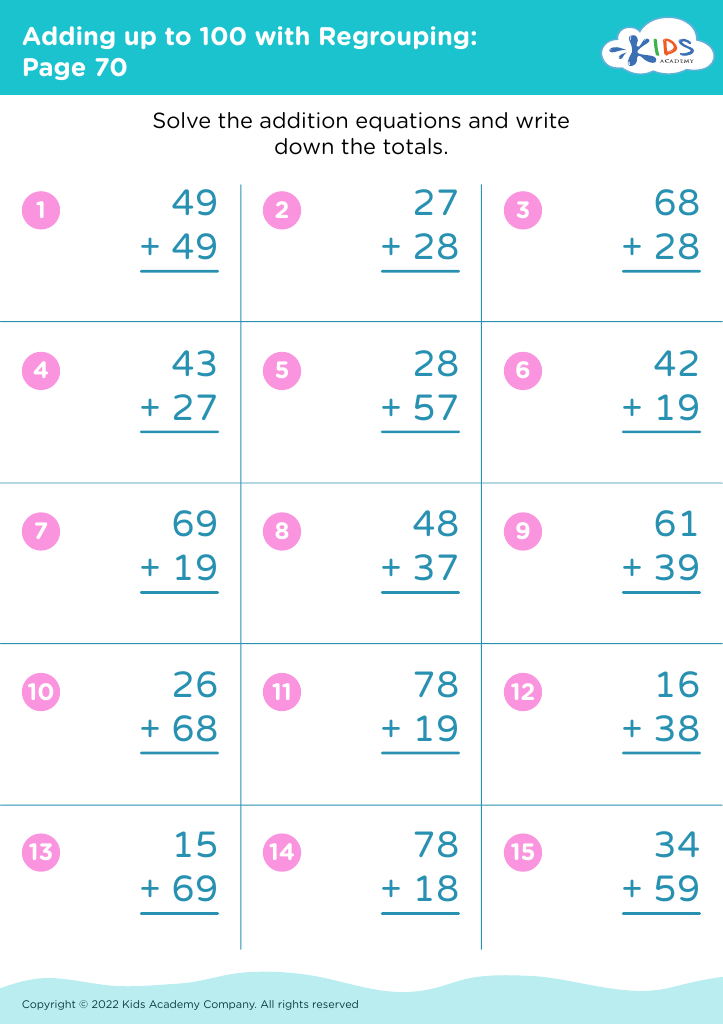Developing problem-solving skills Addition Worksheets for 8-Year-Olds
5 filtered results
-
From - To
Boost your child's confidence in mathematics with our "Developing Problem-Solving Skills Addition Worksheets" designed specifically for 8-year-olds. These engaging worksheets focus on enhancing critical thinking and analytical skills while mastering addition. Each activity presents real-life scenarios, challenging students to apply their knowledge in practical situations. By combining fun with educational content, young learners will enjoy practicing their addition skills and discovering new strategies to solve problems effectively. Ideal for classroom use or at-home practice, these worksheets foster independent learning and help children develop a strong mathematical foundation. Unlock your child's potential and watch them become a confident problem solver today!
Developing problem-solving skills in children, particularly in the context of addition for 8-year-olds, is crucial for their academic and personal growth. At this age, children are transitioning from basic arithmetic to more complex mathematical concepts. When parents and teachers emphasize problem-solving, they are not just teaching kids how to add; they are equipping them with critical thinking abilities that extend beyond the classroom.
These skills foster a sense of independence and self-confidence. Children learn to approach challenges methodically, breaking them down into manageable parts. This resilience is vital not just in math, but also in life situations where they face obstacles, be it in play, academics, or social scenarios.
Additionally, cultivating problem-solving skills enhances collaboration and communication. Children often need to work in groups, explaining their thought processes and learning from their peers. These interactions build essential social skills.
Furthermore, early problem-solving experience sets the foundation for future learning. Mastering addition serves as a stepping stone for more advanced mathematics, influencing urgency in later subjects like algebra and geometry. Ultimately, parents and teachers who invest in developing these skills empower children with tools that promote lifelong learning and adaptability in an ever-changing world.




























